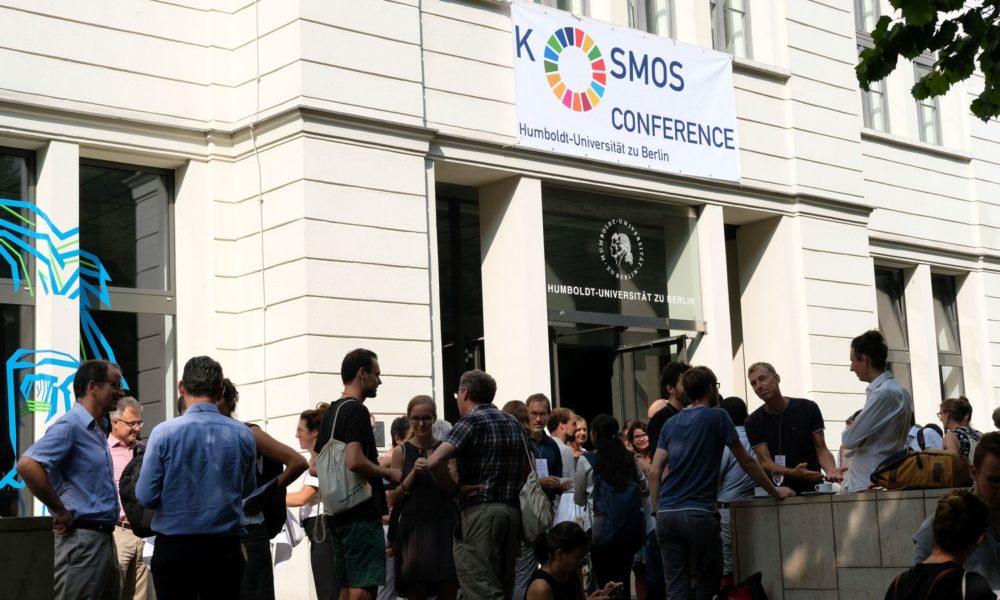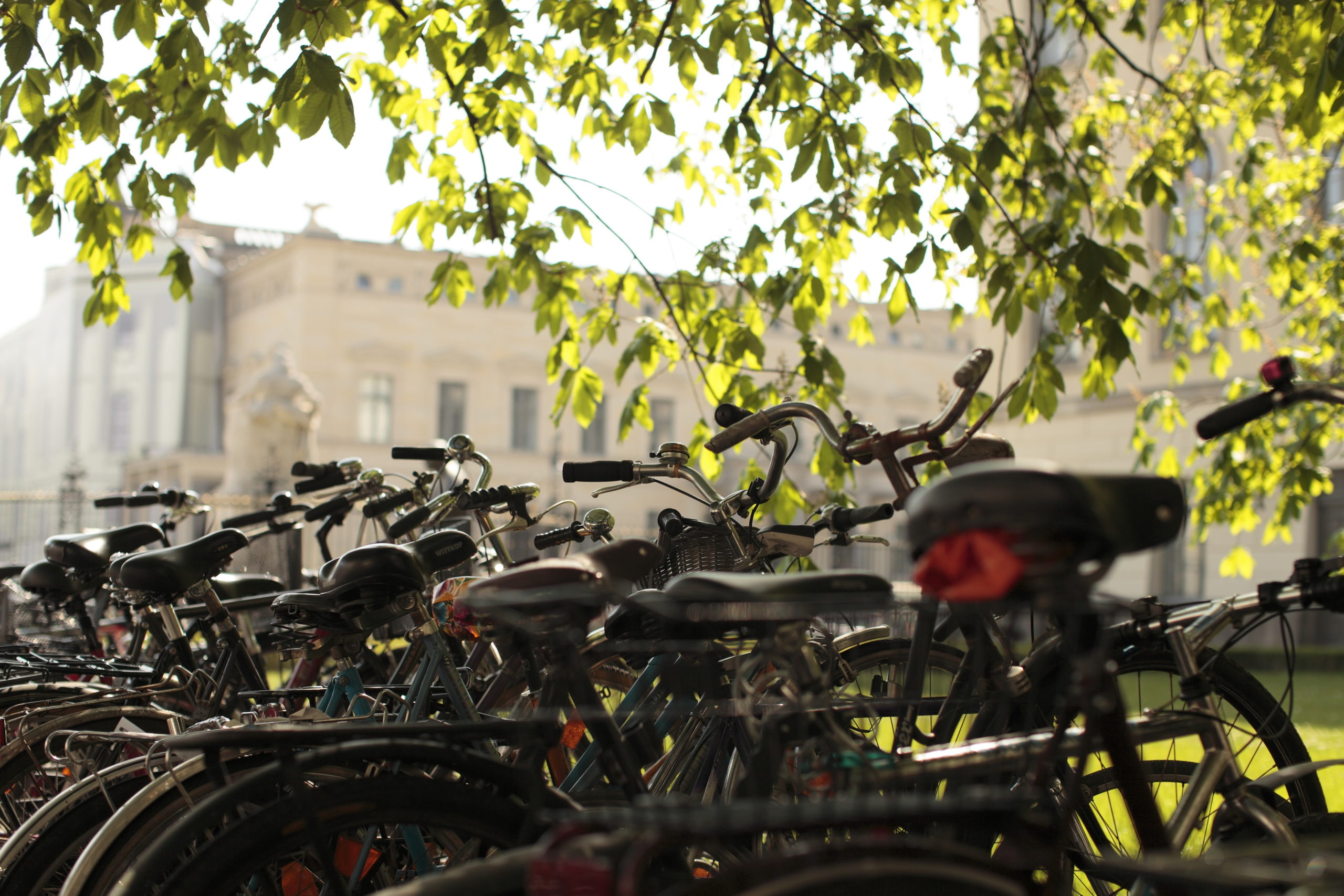Events 2019
-
Aug282019Aug302019
On the occasion of Alexander von Humboldt’s 250th birthday and in light of his famous Kosmos lectures, IRI THESys and the Geography Department staged the KOSMOS Conference at HU Berlin. Termed ‘Navigating the sustainability transformation in the 21st century’ this conference provided a landmark for today’s great challenges towards sustainability.
A critical and constructive debate on the United Nation’s Sustainable Development Goals (SDGs) was the focal point of the conference. Linking to Alexander von Humboldt’s perspective on nature and humanity as a web of interconnections, it targeted the symbiosis between disciplines by bringing together scientists from all fields and nations.
The KOSMOS Conference made use of classic and cutting-edge conference formats: expert forums, poster sessions, a treasure quest, public debates, a citizen scientist table, a bar camp, and a market place. Every conference day was opened by a keynote lecture, and was marked by a public KOSMOS lecture held by Johan Rockström. For further information please visit: www.kosmos.hu-berlin.de

-
Sep162019Sep202019
Human-environment research is the interdisciplinary study of how humans live in, affect, govern, reflect upon and perceive their natural environment, and how, in turn, that environment supports or constrains human life and culture. This research draws much of its legitimacy from being relevant for the very organisation of human-environment relations themselves. Considerable effort is thus invested in understanding pressing societal challenges such as sustainable development, climate change adaptation, land competition, biodiversity conservation and water, food and energy security, to name a few. Yet, researchers are increasingly mandated to engage more actively with politics and the plurality of epistemologies and perspectives on these challenges that exist in society. So, how may human-environment research take an active role in transformative research for and with society?

This is the overall question for this summer school which was addressed by applying science and technology studies (STS) and political ecology perspectives to participants’ own cases as well as getting first hands-on experience with transdisciplinary research methods. First, drawing on STS, we will discuss how human-environment research is co-produced (passive voice) through its historical interplay with culture, politics, economy and technology. The participants appreciated how any prevalent knowledge could have turned out differently had other cultural, political, economic and technological factors dominated in its production. Second, drawing on political ecology, it was discussed how this prevalent knowledge was always contested, overtly or not, by alternative framings, and how people are implicated by this knowledge that had no say in its production. Recognising this democratic deficit in knowledge production will provide us with arguments for opening up human-environment research to those different framings, alternative knowledges and implications that exist. Thus, in the remainder of the summer school, the transdisciplinary methods for co-producing (active voice) knowledge between academics and actors outside the academy were taught. The programme was rounded off with a guide to reflexion on transdisciplinary practice, touching on issues such as fairness and competence of transdisciplinary processes. The 2019 Summer School was organised by Kathrin Klementz and Prof. Dr. Tobias Krüger.


